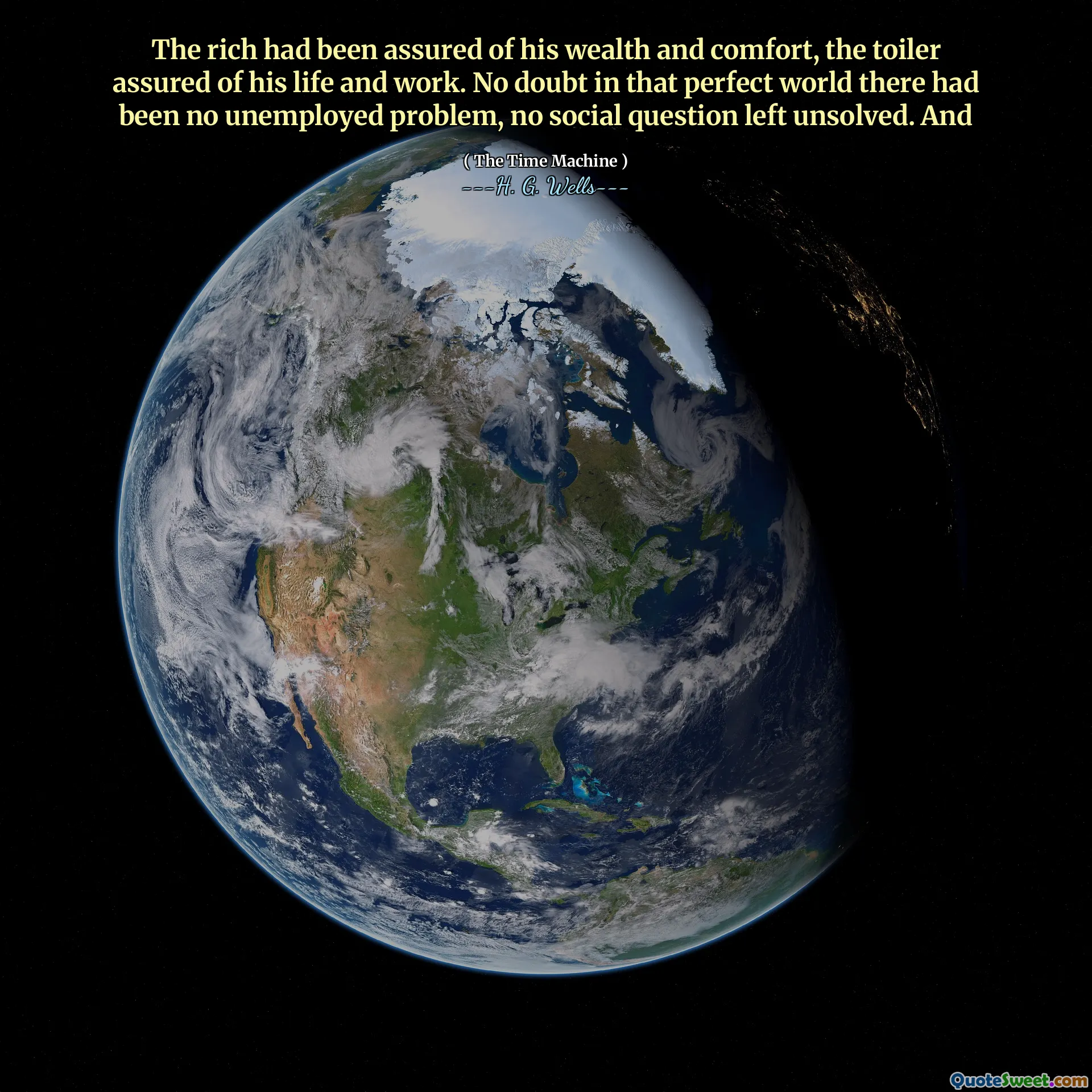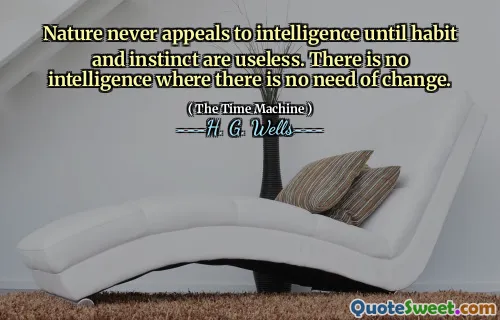
The rich had been assured of his wealth and comfort, the toiler assured of his life and work. No doubt in that perfect world there had been no unemployed problem, no social question left unsolved. And
In H.G. Wells' "The Time Machine," the narrative explores a distant future where society has evolved into two distinct classes: the affluent Eloi and the laboring Morlocks. The Eloi, living in idyllic comfort, reflect a world where the rich enjoy their wealth without concern for labor or social issues. In contrast, the Morlocks operate in the shadows, maintaining the machinery that keeps this utopia functioning while facing harsh conditions. This division highlights the stark disparity between the classes, suggesting that in an idealized world, the rich can exist without anxiety, while the workers are relegated to a life of toil under poor circumstances. Wells critiques the notion of a perfect society, indicating that unresolved social issues persist despite material abundance, emphasizing the necessity of addressing societal inequalities to achieve true enlightenment.
The rich had been assured of his wealth and comfort, the toiler assured of his life and work. No doubt in that perfect world there had been no unemployed problem, no social question left unsolved.











